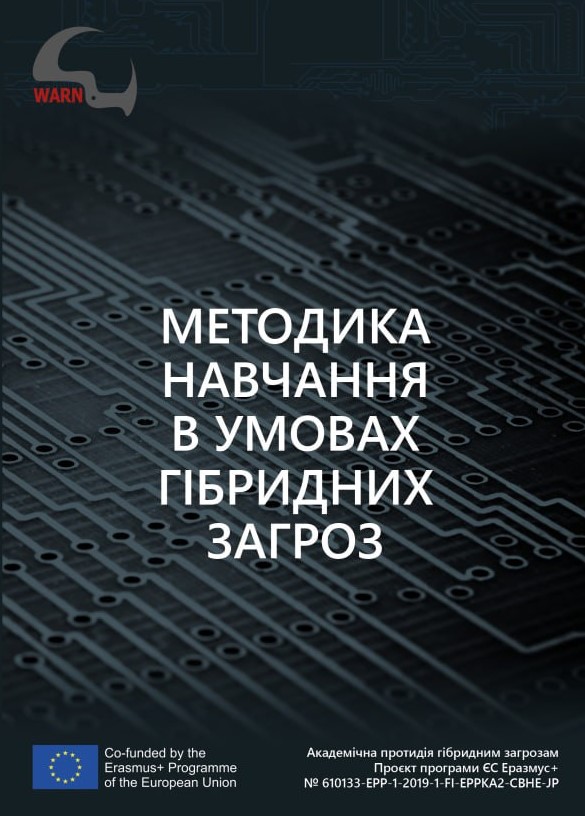30.01.2024
One of the extremely important results of the WARN project, the Manual on Training Methodology in Hybrid Threats, was presented at the WARN project working meeting on 24.01.2024.
The manual contains the results of research and development of the entire project consortium, which are universal in nature. The results obtained are not tied to any speciality and can be applied in the educational process of any educational programme. The recommendations set out in the manual will help teachers train professionals who are resilient to modern challenges.
The proposed methodology is an integral part of the formation of a unique competence formulated within the WARN project: the ability to perform their professional and civic duties in unexpected, unpredictable, even extreme situations caused by hybrid threats.
Such competence cannot be formed solely on the basis of relevant educational content. It is necessary to help students develop the skills of comprehensive defence against specific hybrid threats. This is the task of the proposed methodology.The manual on teaching methods in the context of hybrid threats was created as one of the results of the WARN project “Academic Countering Hybrid Threats” with the financial support of the EU Erasmus+ programme, №610133-EPP-1-2019-1-FI-EPPKA2-CBHE-JP.
The project aims to improve national security by overcoming the shortage of public security services caused by the emergence of hybrid threats. These are new types of threats created by coordinated and synchronised actions that deliberately target the systemic vulnerabilities of democratic states and institutions using a wide range of means. The main vulnerability of hybrid threats is the democratic decision-making process and all those involved in it. People become vulnerable if they are unable to recognise hybrid threats, identify the general rather than local purpose of hybrid influences, and join forces to protect their work and social space from hybrid threats. To effectively counter this new type of threat, the WARN project has introduced preventive education and training of citizens as protection agents. This was made possible by adding a unique competence to any educational programme aimed at developing the ability to perform their professional and civic duties in unexpected, unpredictable and even extreme situations caused by hybrid threats. An integral part of this competence is a specific teaching methodology that allows developing skills in comprehensive defence and countering hybrid threats.

